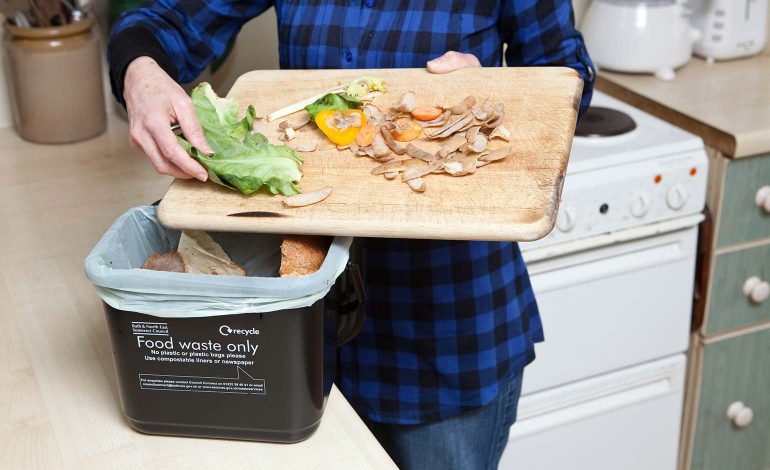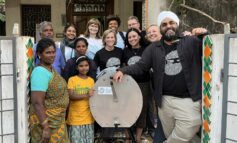The transformation of food waste collected in Bath into electricity to power thousands of homes in the area with nothing going to landfill is now available for residents to see for themselves in a new video.

B&NES Council has partnered with recycling and renewable energy company GENeco to show people how their food waste is first shredded out of its plastic bags, made into ‘soup’ and then ends up as renewable energy and on farmland as a nutrient-rich fertiliser.
The video shows a ‘circular economy’ where nothing is wasted and any plastic is sent for recovery locally.
The GENeco process also produces energy which powers its plant in Avonmouth and 7,000 homes in the area.
Councillor David Wood, cabinet member for Climate Emergency and Neighbourhood Services, said: “Although our residents are recycling more than ever before and over 550 tonnes of food waste is collected from homes each month, there are still some myths surrounding food waste and whether it is really put to good use.
“We are delighted to have worked with GENeco on this interesting and informative video that shows exactly where food waste collected from Bath and North East Somerset ends up.
“I would like to highlight that every piece of food waste that residents put into their recycling bins does count and is a valuable resource.
“We encourage people to compost at home but if this is not possible, to use their food waste bins instead of throwing compostable material into their black bins – it could end up powering their homes.
“If every home in our district recycled its food, it would create enough electricity to power 1140 homes for a year.”
The food waste that ends up in black wheelie bins costs over £100 per tonne to dispose of in local disposal facilities.
It can also cause greenhouse gases if it ends up in landfill. Recycling more food waste through the weekly service helps save money that could be used to fund other essential services for residents and also helps the environment.
The video shows that:
- 10 million tonnes of food waste is processed every year in the UK
- 7 million tonnes of the waste is from people’s homes, which when recycled produces enough energy to power 1 million households, the equivalent of the population of Birmingham
- Bath and North East Somerset’s food waste all goes to a depot in Keynsham for the first stage of its processing, before continuing its journey to GENeco’s state-of-the-art digestion facility in Avonmouth.
- Most of the resulting renewable energy goes back into the National Grid to power 7,000 homes in the region.
The video can be viewed here: https://youtu.be/2I8Tjb4Fy-Q or below.
You can find out more about the council’s recycling services and how to order a food waste caddy and join the collections here: https://beta.bathnes.gov.uk/recycling.



